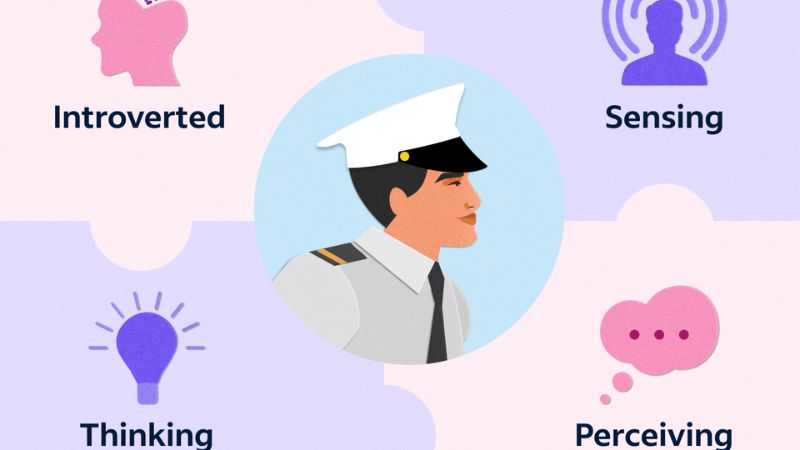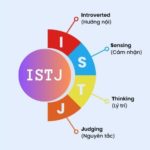ISTP has many unique and interesting characteristics that create barriers for those trying to explore inside them. They are usually excellent at applying logic and reason, but can also surprise by being enthusiastic and spontaneous. In a context where other personalities often easily manifest and make their characteristic traits clear, ISTP is an exception that is hard to decipher. So what is ISTP? The characteristics of mechanical personality type. Let’s explore it right now!
1 What is ISTP?
ISTP is an abbreviation for a personality type with the key characteristics I (Introverted), S (Sensing), T (Thinking), P (Perceiving).
Independence, strong adaptability to all situations, and logical thinking are fundamental characteristics of people with this personality type. The harmonious balance between reason and action helps ISTP individuals become flexible, with unique and logical ideas. They have the ability to maintain calmness and emotional control in any situation.
 What is ISTP?
What is ISTP?
2 Advantages of the ISTP personality type
- Creativity: The imagination of ISTP can be described as limitless, but it is particularly inclined towards practical and direct application in life, such as in mechanical fields.
- Optimism and freshness: When working with ISTP, we can feel their energy and inspiration, as they always know how to minimize stress during work.
- Excellent flexibility: ISTP combines logical thinking and individual work style very smoothly, making them easily adaptable and flexible in handling tasks.
- Calm crisis handling: ISTP excels in handling crises and resolving unexpected situations with astonishing calmness.
- Skilful demonstration of capability: Lastly, they know how to choose the right moment to demonstrate their abilities, and how to seize opportunities to prove themselves.
 Advantages of the ISTP personality type
Advantages of the ISTP personality type
3 Disadvantages of ISTP
Occasionally, ISTP can be stubborn and easily frustrated when criticized about their habits or ideas. Furthermore, they can be daring in facing risks, even when the risks are too big, leading to arguments with colleagues, but they still defend their viewpoint.
If the “I” in ISTP symbolizes introverted personality, then ISTP tends to be reserved and private, always holding a distinct perspective on sensitive issues. This sometimes leads to lack of enthusiasm and difficulty in long-term focus on a specific issue. This attitude also leads to ISTP’s tendency to be uncommitted over a long period of time.
 Disadvantages of ISTP
Disadvantages of ISTP
4 Which professions are compatible with the ISTP personality type?
With their logical thinking and decisiveness, ISTP people often find compatibility in many professional fields. Here are some suggestions for professions they can thrive in:
- Geology or biology researchers.
- Jobs in the police, firefighting, or military fields.
- Stock analysts, finance or economics experts.
- Pilots or jobs related to aviation.
- Captains or working on ships.
- Programmers or information technology experts.
- Artisans, architects, or jewelers.
- Chefs or culinary-related fields.
- Healthcare-related jobs.
Remember, the choice of profession also depends on personal preferences, skills, and values of each individual within the ISTP personality type.
 Which professions are compatible with the ISTP personality type?
Which professions are compatible with the ISTP personality type?
5 Famous people with the ISTP personality type
 Famous people with the ISTP personality type
Famous people with the ISTP personality type
To list some famous individuals with the ISTP personality type, we need to understand the characteristics of this personality type, and then compare them with famous people. Here are some famous individuals who belong to the ISTP personality type:
- Bruce Lee (legendary martial artist from China)
- Michael Jordan (American basketball superstar)
- (famous actor)
- Tiger Woods (golfer)
- Zachary Taylor (former President of the United States)
Through this article, hopefully, you have a clearer understanding of the basic aspect of the ISTP personality type. Stay tuned for our upcoming articles to further expand your knowledge!





































